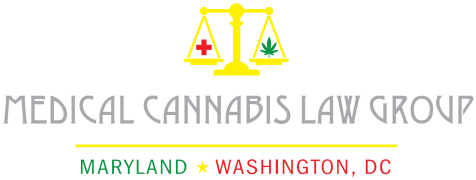Maryland Leaf – August 2019 – Women of Weed Issue
Law Column: Female Representation in the Maryland Cannabis Industry
Writer: Mike Rothman
Pull Quote: Part of the difficulty in measuring women’s impact on this industry is found with the data tracking itself.
Body Word Count: 668, 773 with bio
This month’s issue pertains to women in the Cannabis industry. As these stories make clear, women are shaping Maryland’s burgeoning medical Cannabis industry in ways that no one could have previously envisioned. However, according to a recent industry survey conducted by Vangst – a national Cannabis industry employment site – women make up only 39% of the employees of these companies. According to the Bureau of Labor and Statistics, the percentage of female employees in the industry ranks behind other more traditional female-dominated industries, such as education (68%) and real estate (50%). This represents an improvement over other male-dominated industries such as technology (20%), agriculture (25%), and beverage and tobacco (26%).
However, this does not mean that women and men have reached parity in this new industry. On the contrary, women continue to lag behind men in the executive suites of these Cannabis companies, in economic opportunity, and in overall employment rates. In 2017, the State of Maryland commissioned an economic disparity study to analyze the participation of minority-owned and women-owned enterprises in the state. That study found that women and minorities continue to experience statistically significant differences in their access to state and private sector contracts, as well as in the factors necessary for business success. Moreover, the study recognized that there was an evidentiary basis to apply race and gender conscious remedial measures to increase participation and ownership in the medical Cannabis businesses.
According to the most recent diversity statistics provided on the MMCC website, 57% of Maryland Cannabis businesses were owned by minorities (including females), while 75% of the employees in the Cannabis industry are minorities (including females). While these statistics are encouraging, they certainly do not tell the whole story.
Part of the difficulty in measuring women’s impact on this industry is found with the data tracking itself. Under the new diversity regulations promulgated by the MMCC last year, women are considered to be disadvantaged equity applicants. As of May 2018, Maryland cultivators, processors, and dispensaries were required to submit an annual report to the MMCC about how many minority and women owners were associated with each business. And in the most recent applications period that just ended in June 2019, bonus points were awarded to applications that had a diversity plan designed to employ “disadvantaged equity applicants,” again including women.
However, according to Joy Strand, the Executive Director of the MMCC, the state does not separately track the number of women involved in the Maryland medical Cannabis industry or their relative ownership percentages, apart from other minority groups. As a result, the state does not have any real hard data about the relative numbers of women being hired by the medical Cannabis industry here in Maryland.
But the glass ceiling for women seems to be giving way in Maryland, and practitioners like Dawn-Marie Steenstra are leading the way. Prior to her involvement in the medical Cannabis industry in Maryland, Steenstra ran her own assisted living facility for more than 21 years as a registered nurse. Seven years ago she attended the “Patients Out of Time” Conference in Arizona where she was introduced to the medical research and experiences of patients using medical Cannabis for terminal illnesses. All at once she became aware of the benefits that medical Cannabis could offer to her clients in the areas of hospice care and long-term palliative care. And she realized then that medical Cannabis could bring relief in ways that could never be provided by traditional medicine.
Since that time, Ms. Steenstra has immersed herself in advocating for patients and lobbying the State of Maryland for greater patient protections. She is now a National Ambassador for United Patients Group, works as an outreach coordinator for Mission Dispensaries, and is co-producing a series on medical Cannabis called “The Sacred Plant” for its second season. As she stated in a recent interview for an Americans for Safe Access profile, “I’m grateful I’m getting to be a force for positive change for all these things, furthering the mission of destigmatizing Cannabis.”
*Mike Rothman is the founder and principal of the Medical Cannabis Law Group located in Rockville, Maryland. For more than ten years, Mr. Rothman has advised clients in Maryland and around the country regarding the laws and regulations pertaining to Cannabis, its medical uses, its regulation, its oversight, and its changing legal status. Mr. Rothman has testified regarding Cannabis before a Maryland House of Delegates committee, taught classes on medical Cannabis to the Maryland State Bar Association, the Montgomery County Bar Association, Maryland Public Television’s Law School for the Public, as well as Anne Arundel Community College and Patients Out of Time Seminar in Baltimore.*

